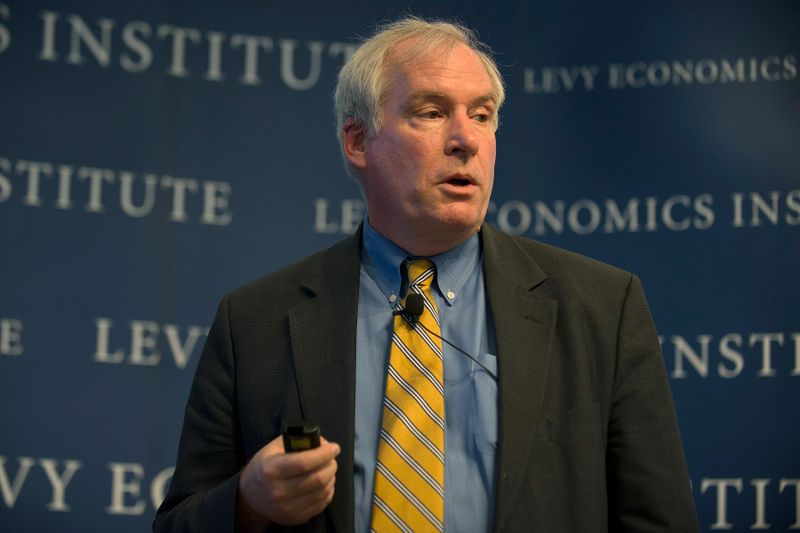(Reuters) – A likely absence of more federal aid for households and businesses this year and the extensive build up of corporate debt will weigh on the U.S. economic recovery from the recession triggered by the COVID-19 pandemic, the head of the Federal Reserve Bank of Boston said on Thursday.
Boston Fed President Eric Rosengren said his outlook was among the weakest ones offered by Fed policymakers at their most recent meeting last month, in large part because he does not believe a new round of fiscal support will be delivered before next year.
“Most of my colleagues had an assumption that there was going to be additional fiscal stimulus. I had a somewhat different assumption,” Rosengren said in response to a question following an online presentation hosted by Marquette University. “I assumed no fiscal stimulus until the beginning of next year. As a result my forecast was much weaker than many of my colleagues.”
At least two other Fed policymakers – Chicago Fed President Charles Evans and Philadelphia Fed President Patrick Harker – said their estimates last month both hinged on $1 trillion of additional federal spending.
Rosengren said his weaker outlook was also influenced by his concerns that a build-up of excessive leverage, especially in sectors like commercial real estate, and its potentially destabilizing effect would make any recovery more difficult.
At their latest meeting last month, Rosengren and his colleagues on the Federal Open Market Committee – the central bank’s policy-setting arm – offered up their latest quarterly forecasts for economic growth, unemployment, inflation and the appropriate level of short-term interest rates set by the Fed.
On balance, policymakers marked up their estimates for U.S. gross domestic product for this year thanks to an early sharp recovery in activity fueled by more than $3 trillion in federal pandemic relief enacted by Congress in the spring. Negotiations for more assistance have been hampered by partisan bickering ahead of the Nov. 3 presidential election.
The median estimate among Fed policymakers now projects a contraction in GDP this year of 3.7% versus an estimate from June of 6.5%.
Rosengren’s remark Thursday that his near-term outlook was “much weaker” than most on the committee would appear to signal that his projection would rank outside the so-called “central tendency” among policymakers, which excludes the three lowest and highest estimates. That would place his estimate for GDP between negative 4% and negative 5.5%, which is the lowest of the 17 estimates offered.
“Fiscal policy is the right tool for this time,” Rosengren said, repeating a mantra heard now with regularity and increasing urgency from Fed policymakers. “I think it’s tragic that it has not been deployed already.”
In his prepared remarks, Rosengren reiterated his long-running concerns about the risks that persistently low interest rates pose to financial stability.
“Clearly a deadly pandemic was bound to badly impact the economy. However, I am sorry to say that the slow build-up of risk in the low-interest-rate environment that preceded the current recession likely will make the economic recovery from the pandemic more difficult,” Rosengren said.
“The increased risk build-up, such as the reaching-for-yield behavior in commercial real estate or increased corporate leverage, make economic downturns including this one more severe. These are issues that I and others spoke about quite extensively in the years before the pandemic hit, in particular with respect to questions about the need for accommodative interest rates when the economy was doing well, and the potential for a build-up of financial stability risks.”
(Reporting By Dan Burns; Editing by Chizu Nomiyama)






















